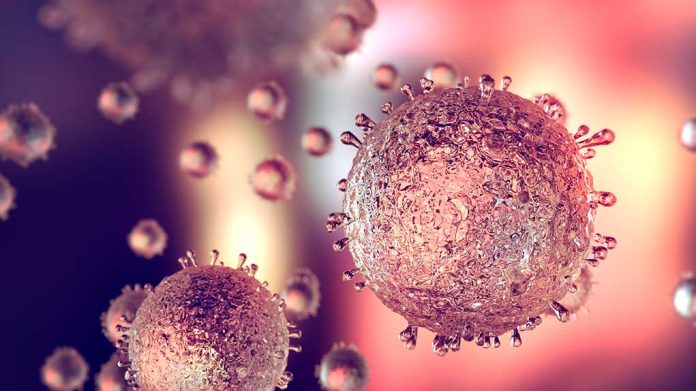
At a Glance
- The CDC has issued a Health Alert Network (HAN) Health Advisory due to increased human parvovirus B19 activity in the United States.
- The virus, responsible for fifth disease, is highly transmissible through respiratory droplets.
- Children aged 5–9 years have shown a significant increase in infection rates.
- There is no vaccine or specific treatment, emphasizing the need for preventive measures.
CDC Raises Alarm on Parvovirus B19 Infections
In an urgent advisory, the Centers for Disease Control and Prevention (CDC) has announced a troubling increase in parvovirus B19 infections, particularly among children. Known for causing fifth disease—a mild yet highly contagious childhood illness—the spike alarmed both healthcare providers and parents alike.
Parvovirus B19 usually spreads through respiratory droplets, making communal environments like schools and childcare centers hotspots for transmission. The CDC’s Health Alert Network (HAN) highlights the need for communities to be proactive in curbing this outbreak by enforcing hygiene protocols and encouraging parents and teachers to be vigilant.
Europe and the U.S.: A Rising Concern
Interestingly, the U.S. isn’t alone in facing this surge. Earlier this year, 14 European countries reported an abnormally high number of parvovirus B19 cases, further entrenching the concern. Despite the increased activity, the U.S. lacks routine surveillance for this virus, causing the CDC to rely on community awareness and ad hoc reporting to monitor its spread.
As of June 2024, the incidence of the virus has starkly risen, especially among children aged 5–9. The proportion of children in this age group with IgM antibodies, an indicator of recent infection, escalated from a mere 15% to a startling 40%.
The Importance of Preventive Measures
Given the lack of a vaccine or specific antiviral treatment for parvovirus B19, preventive measures become all the more critical. The CDC emphasizes frequent handwashing, disinfection of common surfaces, and covering the mouth and nose when sneezing or coughing as fundamental practices.
“Most people require only supportive care during the acute phase of illness and will recover completely. Severe outcomes from parvovirus B19 disease, such as myocarditis, hepatitis, or encephalitis, are rare,” the CDC explained, while noting that there isn’t a vaccine for the virus.
The general public, particularly those working with children, are encouraged to recognize symptoms early and take the appropriate steps to isolate affected individuals. Symptoms of parvovirus B19 often include a biphasic illness with fever, muscle pain, malaise, and the characteristic “slapped cheek” rash in children.
Long-term Impact and Community Safety
Communities must remain vigilant, especially to safeguard the more vulnerable populations. Pregnant individuals, those with compromised immune systems, and people with chronic hemolytic disorders are particularly at risk and should consider additional precautions such as mask-wearing and immediate medical attention if symptoms arise.
With reports indicating clusters of complications among pregnant people and those with sickle cell disease, the CDC cannot emphasize enough the importance of preventive counsel and testing for high-risk groups. Although a majority of infected individuals recover with supportive care, severe outcomes, though rare, underscore the necessity of a collective effort to mitigate the spread of this contagion.
Sources
- https://emergency.cdc.gov/han/2024/han00514.asp
- https://www.ccenterdispatch.com/news/national/article_cb1660a8-e06a-5eb8-9f77-98591d8c6657.html
- https://www.washingtonpost.com/health/2024/08/14/parvovirus-b19-symptoms-treatment-cdc/
- https://www.abc27.com/national/virus-that-causes-slapped-cheek-rash-in-kids-is-rising-in-us-cdc-warns/amp/
- https://www.cdc.gov/parvovirus-b19/prevention-treatment/index.html
- https://www.tukapediatrics.com/Fifth-Disease-Human-Parvovirus-B19
- https://www.precisionvaccinations.com/40-children-infected-human-parvovirus-b19-2024-08-13










